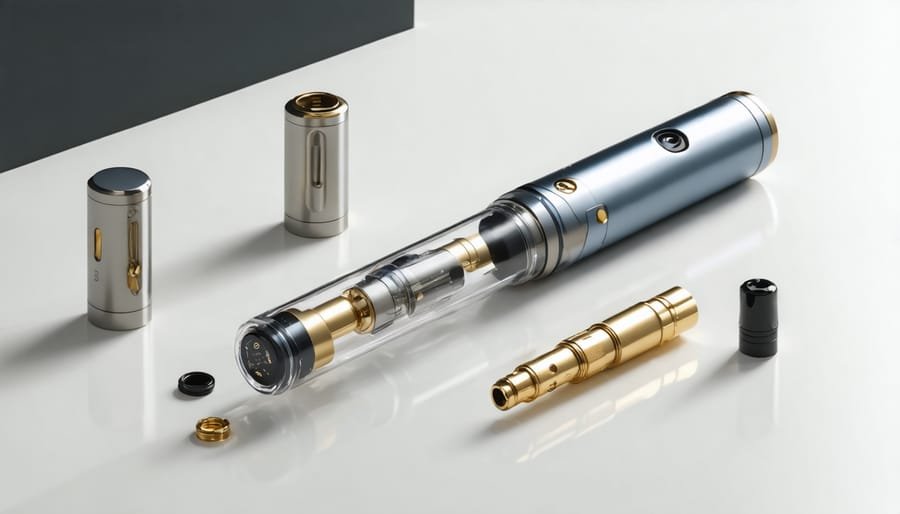A Global Trend Reaches Sweden
The cannabis industry has gone through dramatic changes in recent decades. From prohibition and stigma to legalization and normalization in many countries, the conversation around cannabis is evolving rapidly. This global trend is now beginning to influence Sweden, a country historically known for its strict stance on cannabis. While recreational cannabis remains illegal, curiosity about non-psychoactive cannabinoids is growing steadily. Among these, THCA (tetrahydrocannabinolic acid) is one of the most intriguing compounds entering the spotlight. Interest in THCA Vape, Köp THCA, and THCA Sverige is increasing as people look for safe, innovative, and responsible ways to explore cannabis derivatives.
THCA’s appeal lies in its dual nature. Unlike THC, it does not cause psychoactive effects in its natural form. This means people can explore cannabis without the traditional “high.” However, when heated, THCA converts into THC, unlocking the familiar psychoactive experience associated with cannabis. This transformation is particularly fascinating in Sweden, where people value both health-conscious trends and modern technology. Vaping provides the perfect method for activating THCA while maintaining control, safety, and discretion.
In this comprehensive guide, we will explore everything about THCA in Sweden. From understanding the science behind it to cultural perspectives, consumer behavior, and future possibilities, this article will take you through a deep dive into a compound that is quietly reshaping the way Swedes think about cannabis.
Understanding THCA: Beyond THC
THCA, or tetrahydrocannabinolic acid, is a cannabinoid found in raw cannabis plants. To fully appreciate why THCA is important, we need to understand the science behind it. In its raw state, THCA does not cause psychoactive effects. This is because the molecular structure prevents it from binding effectively with the body’s cannabinoid receptors. In simple terms, THCA will not make you feel “high” unless it is heated.
When exposed to heat through a process known as decarboxylation, THCA loses a carboxyl group and transforms into THC. This is the compound responsible for cannabis’s psychoactive effects. Vaping is one of the most efficient ways to cause this transformation. Unlike smoking, vaping avoids combustion, making the process cleaner and more controlled.
For Swedish consumers, this scientific clarity is appealing. People want to know exactly what they are consuming and how it works. THCA provides that transparency: non-psychoactive when raw, psychoactive when heated. It is a simple yet powerful distinction that makes it easier for the public to accept and experiment with.
Another reason THCA is gaining attention is its potential benefits. While research is still developing, early studies suggest THCA may have anti-inflammatory, neuroprotective, and anti-nausea properties. Although these findings are not yet conclusive, they provide a basis for curiosity among wellness-focused consumers. In Sweden, where health and wellness trends are highly influential, THCA is being viewed as a potential addition to the broader conversation about natural health solutions.
The Rise of Vaping and THCA
Vaping has revolutionized how people consume cannabis. Globally, vaping is now seen as a preferred method because it offers precision, convenience, and reduced harm compared to smoking. Instead of burning plant material, vaping heats it to a temperature where cannabinoids are released without producing harmful byproducts of combustion.
When it comes to THCA, vaping is particularly significant. Users can control the temperature, deciding whether they want to preserve THCA in its raw form or convert it into THC. This flexibility is a major advantage and explains why THCA Vape is gaining traction in Sweden.
The popularity of vaping in Sweden is tied to broader lifestyle choices. Swedes tend to embrace new technologies and prioritize health-conscious decisions. Many people view vaping as a more modern and responsible way of experiencing cannabis-related products. This aligns with a cultural preference for efficiency, safety, and innovation.
Additionally, vaping is discreet. Devices are small, portable, and odor is minimal compared to smoking. For a society where cannabis use is still stigmatized, discretion is a key factor. People can explore cannabinoids without drawing unnecessary attention, making vaping an attractive option.
THCA in the Swedish Market
The Swedish market for cannabis-derived products is still in its early stages. Regulations are strict, and the stigma around cannabis remains strong. However, the global rise of cannabinoids is slowly influencing Swedish consumers. People are increasingly aware of alternatives like CBD, and now curiosity is turning toward THCA.
Consumers who want to Köp THCA face unique challenges. Trust is one of the biggest concerns. Because of regulatory limitations, the market is small and not as developed as in countries where cannabis is legalized. This creates risks of counterfeit or low-quality products. Swedish consumers, however, are known for being careful and selective. They want transparency, lab testing, and reliable sources before making a purchase.
One trusted option for consumers is THCA Vape Köp THCA THCA Sverige. Platforms like this provide not only products but also guidance, ensuring customers understand what they are buying. This builds trust and confidence, which are essential for developing a responsible and sustainable market. By focusing on quality and transparency, Swedish platforms can help break down stigma and open the door for broader acceptance.
Cultural Shifts and Public Perception
Cannabis has historically been stigmatized in Sweden. Strict drug laws and cultural attitudes have long created barriers to acceptance. However, this is slowly changing. Globally, cannabis is being rebranded as a natural wellness product, and younger generations in Sweden are more open to exploring it.
Public perception is shifting in part because of education. As people learn more about cannabinoids, they realize that cannabis is not a single, monolithic product. Compounds like CBD and THCA show that cannabis can be diverse, versatile, and not always tied to intoxication. This nuanced understanding is helping reduce stigma.
Generational differences are also important. Younger Swedes are more curious about cannabis and less influenced by past stigmas. They are willing to explore cannabinoids if they feel it can be done safely and responsibly. For them, THCA represents a safe entry point into the cannabis world. It allows experimentation without fully embracing the stereotypes associated with THC-heavy products.
Media and education play a crucial role here. Articles, blogs, and trusted platforms help provide clarity, ensuring people understand the science and the risks. As education spreads, acceptance is likely to grow, paving the way for more open conversations about cannabis in Sweden.
The Future of THCA in Sweden
Looking forward, the future of THCA in Sweden appears promising. While laws remain strict, global research is expanding rapidly. More studies are being conducted on cannabinoids, and findings may eventually influence policy decisions. Sweden is known for being cautious but open to evidence-based change. As more evidence emerges about the potential benefits of THCA, public and political discussions may follow.
Innovation in vaping technology will also shape the future. Devices are becoming more sophisticated, offering better control, safety, and design. These improvements make vaping more attractive and user-friendly, increasing the likelihood of wider adoption.
The potential uses of THCA go beyond recreation. If research continues to highlight therapeutic benefits, Sweden may eventually explore its medical applications. This could open up new opportunities in the healthcare sector, further normalizing cannabinoids in society.
For now, Swedish consumers who are curious about THCA can experiment responsibly, focusing on education, trusted sources, and safe practices. As stigma continues to soften, and as curiosity grows, THCA could become a central figure in Sweden’s evolving cannabis landscape.
Conclusion: THCA as a Bridge to the Future
THCA represents more than just another cannabinoid trend—it symbolizes a new chapter in how cannabis is understood in Sweden. Its unique ability to exist as both a non-psychoactive compound and a precursor to THC makes it versatile, appealing to both wellness-focused individuals and those seeking recreational effects. Vaping has amplified this appeal by offering a modern, safe, and discreet way to consume THCA.
Swedish consumers are cautious but curious. They want transparency, safety, and innovation in their products. Platforms that provide these qualities are helping build trust and open new opportunities. With THCA Vape becoming more popular, the conversation around cannabis in Sweden is shifting from stigma to exploration.
The journey is just beginning, but THCA has the potential to reshape how Sweden views cannabis. It offers balance: the ability to explore without losing control, to enjoy both wellness and recreation, and to do so in a responsible, informed way. With the right education, trusted platforms, and continued innovation, THCA could play a pivotal role in Sweden’s future cannabis culture.







